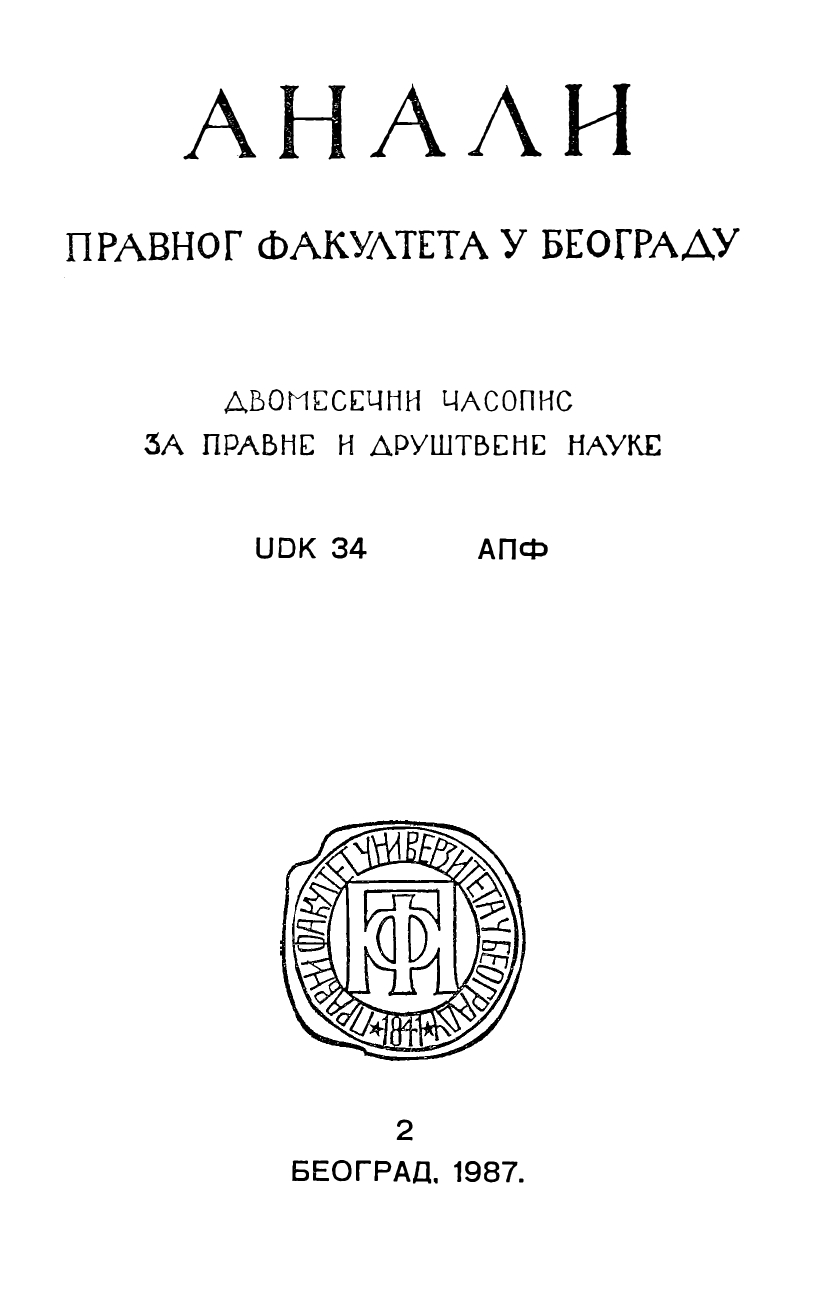БИЛАНС ЧЕТРДЕСЕТ ГОДИНА „КОНСТИТУЦИОНАЛИЗАЦИЈЕ" ЈЕДНЕ ЗЕМЉЕ: НЕКЕ ТЕШКОЋЕ И БУДУЋНОСТ ЈАПАНСКОГ УCTABA ОД 1946.
THE ACCOUNT OF FOURTУ YEARS OF „CONSTITUTIONALISATION" OF A COUNTRY: SOME DIFFICULTIES AND THE FUTURE OF THE 1946 JAPANESE CONSTITUTION
Author(s): Yoîchi HiguchiSubject(s): Law, Constitution, Jurisprudence, History of Law, Constitutional Law
Published by: Правни факултет Универзитета у Београду
Summary/Abstract: The enacting of the Constitution in November of 1946 is, according to the author, the beginning of constitutionality in Japan, since taking up of the road of constitutionality by that country at the end of the nineteenth century has in fact been engaging in the so-called apparent constitutionalism (Scheinkonstitutionalismus), due to the character of the Imperial Charter, enacted in 1889. The author emphasizes the positive experiences gained in Japan with the fourty years of constitution. While rejecting the opinion that liberal democracy, which found its expression in the 1946 Constitution, has ben imposed by the occupying authorities of the United States, the author points at the significance of democratic movements and ideas which preceded that Constitution for almost a seventy years period. The Constitution of 1946 is particularly characterized by three basic principles, namely: people's sovereignty, inalienable rights of man, renouncing of war and armaments. The enacting of Constitution was followed by numerous reforms, and more particularly the following three: (i) abolishing of regime of semi-feudal agrarian ownership by way of expropriation, folowed by payement of only small compensation thereof; (ii) developing of workers' trade unions; (iii) emancipation of woman by way of abolishing of the family regime based on strictly traditional and patriarchal conceptions. However, according to the author, the Constitution of 1946 has not been a result of changes which has been effected by the people tmeselves. It has opened the possibility of emancipation of personality, but in fact has realized only the emancipation of private interest. In addition to that problem, there is the one, particularly, related to the fact that the Liberal-Democratic Party (i.e. the ruling party) has never accepted that Constitution, while striving to effect its revision in an „autonomous way". All that has influenced the developments which meant that the Constitutions has never really become the genuine rule of the political life. The characteristic of contemporary Japan is also the so-called „constitutional challenge" of Japan. This is described by the author as the experience of extending the constitutionality within the out-of-Eunope cultural world, which only helps achieving the genuine universal character of constitutionality of European origin.
Journal: Анали Правног факултета у Београду
- Issue Year: 35/1987
- Issue No: 2
- Page Range: 152-158
- Page Count: 7
- Language: Serbian

